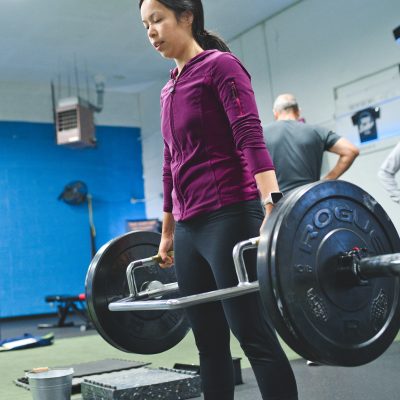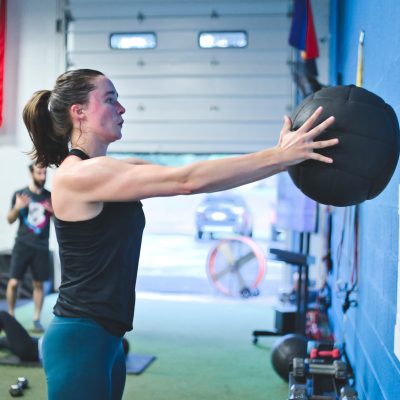Will Strength Training Make Me Bulky?
“Will strength training make me bulky?”, a question and common misconception about strength training and lifting weights that we get a lot of here at Bent On Better. We can understand why people would think this way about lifting weights. With the boom of weightlifting as a professional sport in the ’80s, the kettlebells, dumbbells, and weights have been associated with building muscle mass. Although that may be true to some extent, we’re here to let you know how muscle building and losing weight actually work.
The Answer to the Question: Will Strength Training Make Me Bulky?
Short answer? No. Now to explain, we have to keep it clear that “bulky” in this sense means having big muscles, and although some of our male members might have this as a goal, most of our female members want to focus on losing weight. (To set the record straight, we think women with obvious muscles are just as awesome!)
 How Can I Bulk up?
How Can I Bulk up?
Unless you try to change your whole fitness goal to gain more muscle mass, strength training by itself won’t be enough to get you bulky. Below are some steps you can take to help with getting bigger muscles:
- Increase your calorie intake.
- Decrease your caloric output (for more info on calorie in and calorie out, check out our blogpost on If It Fits Your Macros (IIFYM)
- Increase the amount of time you spend on strength training to 2 hours a day.
- Get a complete 8-10 hours of sleep.
When you start strength training or any new program, you will notice some weight gain. That’s because your body needs more nutrients to perform properly. If you keep eating less while doing strength training and lacking sleep because of stressing out about losing weight, your stress hormones are more likely to hang on to body fat (which is good because you need body fat for energy and is only bad when in excess).

How Can I Lose Weight With Strength Training?
- Set Strength Training as a foundation for your fitness.
- Add more cardio to your exercise.
- Don’t forget to get your nutrition down to have more energy.
- Get your body composition calculated to see how much body fat you need to lose and how much lean muscle mass you’ll need to gain to sustain your strength. At the Bent On Better gym, we use the InBody Calculator.
- If you have dietary restrictions, it’s best to discuss with your physician that you are doing strength training so they can adjust your diet to fit the program.
- Don’t skip out on getting sodium or electrolytes to help your cells stay in tip-top shape.
Listen on Spotify:
Conclusion
Any fitness program you’ll get into will say the same thing we have– without proper nutrition, complete hours of sleep, and enough recovery steps taken, it’ll be more challenging for your body to reach its goal. Whether you want to gain muscle or lose weight, having strength training as a foundation won’t only help you get stronger, it’ll also allow you to move and make it easier for you to become a better version of yourself.
“It’s the intention and the habits and behaviors that go with the identity. I wanted to identify as a bigger person, so I set my intentions that way, and I created my habits to match.” – Matt April on how he bulked up for his goals.
Watch the video here:
